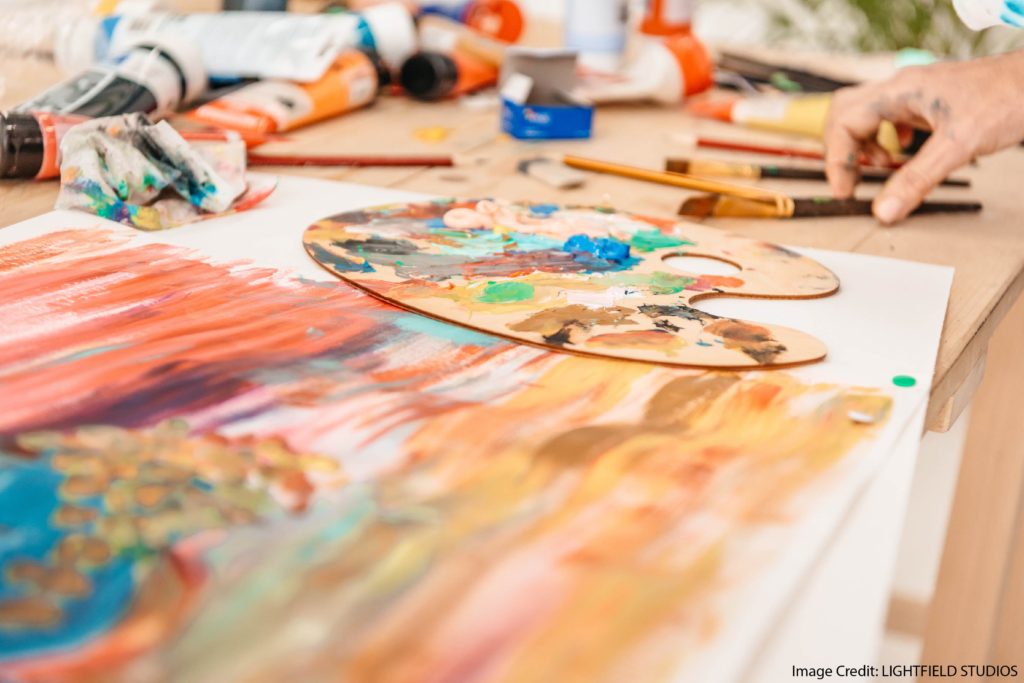It happened just this morning! I was watching my favorite sci‑fi series when I felt the thrill of a creative idea for my class—then immediately thought, “Ugh, that’s embarrassing. I have no idea how I’d make that work. Better play it safe.” The opportunity for creativity withered, the chills faded, and I was back to my trusty distraction. I want to be creative, but maybe it’s just not me—so I shelve my “brilliant” ideas as silly daydreams. Still, the drive lingers. Maybe I just need another book on creative thinking
Let’s be honest: there’s no shortage of books promising to unleash your inner creative genius—from painting like Picasso to solving life’s practical puzzles like a Sherlock Holmes. But Zorana Ivcevic Pringle’s The Creativity Choice addresses something they often miss: how creatives move from having creative ideas to choosing to take meaningful creative action.
If ideas are everywhere, why do so few become reality? What’s holding us back from moving more of these fanciful daydreams into the playground of reality?
You will see this isn’t about uncovering hidden talents or dissecting your artistic personality. Instead, it’s about making critical, often uncomfortable decisions to turn ideas into tangible outcomes. As she succinctly puts it, “making an idea happen starts with a choice. You have to choose to act—despite physical, material, or emotional obstacles.”
Plenty of books rally us with motivational stories or vague encouragements to chase our dreams, but Pringle offers something more substantial. Through rigorous psychological research and rich interviews, she pinpoints the key moments when ideas turn into reality, highlighting messy but necessary decisions along the way.
Ever wonder why your best ideas gather dust, get forgotten, and are washed away with the rain of daily struggles? Pringle’s practical, research-based approach provides the nudge you might need. It’s not about how many ideas you have; it’s about repeatedly choosing to act on them.
Creativity: A Choice—Again and Again and …
Regular readers know I’m a college instructor—and teaching, at its core, is about constant creative evolution. We’re always revising, experimenting, and adjusting methods to keep pace with change. How often have you dreamt up a lesson only to let it shrivel under self-doubt or the judgment of your inner critics? Pringle’s insights encourage us to get to know these obstacles and approach creativity with courage and resilience, even when doubts shout loudest.
Her core argument is simple yet liberating: Creativity isn’t exclusive to artistic geniuses; it’s a series of deliberate choices available to everyone. But making the creative choice takes practice. A new habit of mind.
What really stops our ideas from coming to life isn’t a lack of genius—it’s the nagging resistance within, the fear of looking foolish, and the pull to fit in. Pringle’s funny stories from her Croatian childhood remind us how early we learn to hide our quirks instead of celebrating them. I still cringe remembering painstakingly tracing pictures from an old art book to pass off as my own—nothing says ‘creative genius’ like stealing someone else’s doodles. I’m sure my third-grade classmates were blown away.
The (Actual) Science of Getting Things Done
Rather than perpetuating the myth of the lone creative genius in the throes of passion with a can of paint, Pringle dives into the real practical science. Creativity combines originality with practicality and goes beyond painting—think cooking, coding, or even rearranging your messy desk.
Through examples like YouTubers reviving ancient recipes or engineers building clever apps, she shows how creativity thrives because of constraints. Limitations push us to innovate.
One of her key tools? Emotional granularity—naming and using feelings constructively. Waiting to feel confident, she warns, is the fastest way to stall out.
And no, creativity isn’t a smooth ride. It’s messy, uncomfortable, and full of detours. But successful creators learn to work with discomfort, not avoid it
Finally, it’s not a solo act. Pringle highlights the importance of “bonding” connections (supportive folks) and “bridging” ones (fresh perspectives). Without them, ideas often fade before they begin.
This book helped me look a little more mindfully at myself and the choices I’m making. Teaching and learning are inherently creative, yet we often hesitate to trust our ideas fully. Pringle reminds me (and maybe you too) that internal critics, though stubborn, are beatable. Creativity in education isn’t always smooth—just ask anyone who’s tried exciting teenagers about algebra. But choosing to act on those moments when we feel that creative tickle makes teaching even more meaningful.
The real magic, Pringle argues, lies in the small, courageous choices we make all the time. The Creativity Choice might not guarantee constant triumph, but it prepares us to choose creativity more often—and perhaps that’s the ultimate secret. Time for you to choose…



















